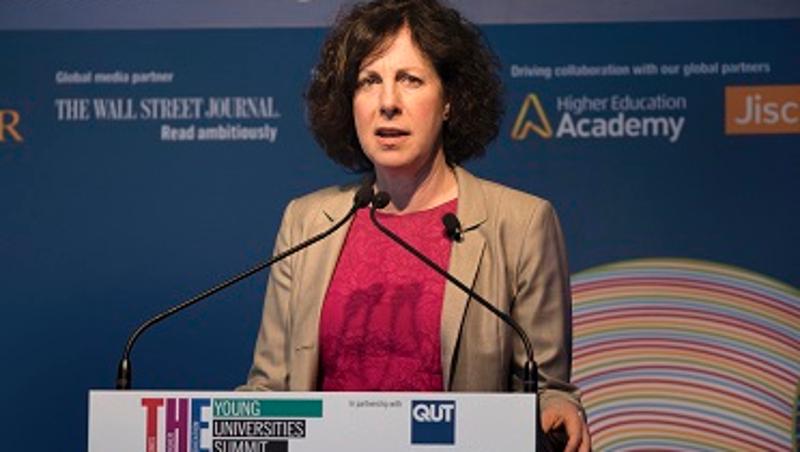
A “little bit of computer science” gives graduates the skills to thrive in the future workforce, an international higher education summit has heard.
Carla E. Brodley, dean, College of Computer and Information Science, at Northeastern University, in Boston, addressed the Times Higher Education (THE) 2017 Young Universities Summit at QUT on the topic: Computer science for everyone.
As the first computer science college in the US, Northeastern offers 30 undergraduate degrees in computer science, 50 per cent of them with a minor area of study. Students study computer science alongside everything from journalism to theatre studies.
“I have a fundamental belief that not everyone should be a computer scientist but everyone should have a bit of computer science,” Professor Brodley said.
There is a “cultural problem” with computer science, Professor Brodley said, with “abysmal” participation rates. Of those studying computer science in the US, just 14 per cent are women and 3 per cent African American.
Professor Brodley investigated why more students weren’t pursuing the skills that will be essential in the future economy.
“(I found) 75 per cent who tried computer science liked it enough to do a second class. And 75 per cent who liked the second class liked it enough to do a minor or major,” she said.
As well as making skills like coding more accessible for students through dual degrees, Northeastern offers co-ops, or work-based learning, programs with more than 3,000 organisations, on every continent. In 2016, close to 10,000 students went out to a co-op program.
“I say to students try a bank, try a large software company like Amazon and try a start-up and see what you like. What kind of environment do you like?” Professor Brodley said.
The integration of computer science with other disciplines is not only valuable for graduates.
“We wanted to increase, not only the diversity of demographics, but we also wanted to create diversity of thought,” Professor Brodley said.
“What would your iPhone apps look like if they’d been created by a more diverse population?
“I believe that by bringing these disciplines together we have the ability to ultimately have greater innovation and disruption in industry, research and tech.”
Follow the Summit via Twitter:
#YoungUni
#THEYOUNG
Media contact:
Rob Kidd, QUT Media, 07 3138 1841, rj.kidd@qut.edu.au
After hours, Rose Trapnell, 0407 585 901, media@qut.edu.au




